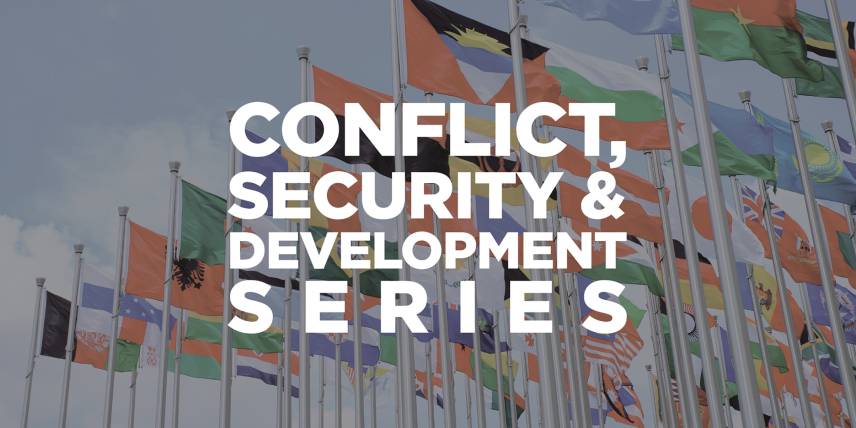Spring 2021 Conflict Series - The Frontlines of Peace: An Insider’s Guide to Changing the World
Each Tuesday, the Conflict, Security, and Development Series will examine new research, discuss creative policy approaches, and highlight recent innovations in responding to the challenges of security and development in conflict and post-conflict situations.
Séverine Autesserre, Professor, Department of Political Science, Barnard College, Columbia University will speak about her upcoming book, The Frontlines of Peace: An Insider’s Guide to Changing the World.
The word “peacebuilding” evokes a story we’ve all heard over and over: violence breaks out, foreign nations are scandalized, peacekeepers and million-dollar donors come rushing in, warring parties sign a peace agreement and, sadly, within months the situation is back to where it started—sometimes worse. But what strategies have worked to build lasting peace in conflict zones, particularly for ordinary citizens on the ground? And why should other ordinary citizens, thousands of miles away, care? In The Frontlines of Peace, Séverine Autesserre, award-winning researcher and peacebuilder, examines the well-intentioned but inherently flawed peace industry. With examples drawn from across the globe, she reveals that peace can grow in the most unlikely circumstances. Contrary to what most politicians preach, building peace doesn’t require billions in aid or massive international interventions. Real, lasting peace requires giving power to local citizens.
The Frontlines of Peace tells the stories of the ordinary yet extraordinary individuals and organizations that are confronting violence in their communities effectively. One thing is clear: successful examples of peacebuilding around the world, in countries at war or at peace, have involved innovative grassroots initiatives led by local people, at times supported by foreigners, often employing methods shunned by the international elite. By narrating success stories of this kind, Autesserre shows the radical changes we must take in our approach if we hope to build.
